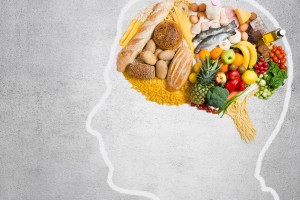
Over the past decade, I’ve learned a great deal as to what causes heart attacks and how to prevent them. But there’s a chance the common public might have misconceptions about the risk factors for heart disease. Replacing the top 10 myths with truths will provide the information one needs so he and his doctor can plan the best path to a healthy heart.
MYTH 1: If you have a heart disease, you need to take it easy.
“For the vast majority of people with heart disease, being sedentary is a bad idea. It can lead to blood clots in the legs and a decline in overall physical condition,” says cardiologist Dr. Richard T. Lee, co-editor in chief of the Harvard Heart Letter.
Physical activity results to strengthen the heart muscle, improves blood flow to the brain and internal organs, and improves well-being.
Inquire with your doctor what kind of exercise would be right for you & how much you should do. Many people can walk, and mostly any amount of walking is good for your heart.
MYTH 2: It’s okay to have higher blood pressure when you’re older.
Blood pressure tends to rise with age. It happens because arterial walls become stiff with age. Stiff arteries force the heart to pump blood harder. This sets up a vicious loop. The overworked heart muscle eventually becomes less effective and attempts to pump harder to meet the body’s demands for blood which further damages the arteries and invites fat into the arterial walls. This is how high blood pressure raise the risk of heart attack and stroke.
Periodically have your blood pressure checked. If it’s above 140/90 millimeters of Hg, ask your doctor for ways to bring it down.
MYTH 3: Diabetes won’t result in heart disease if you take diabetes medication .
.
Diabetes medication results in lowering blood sugar levels. Maintaining normal blood sugar levels is very important for preventing complications that may affect the smaller blood vessels, such as kidney disease, loss of vision, erectile dysfunction, and nerve damage.
results in lowering blood sugar levels. Maintaining normal blood sugar levels is very important for preventing complications that may affect the smaller blood vessels, such as kidney disease, loss of vision, erectile dysfunction, and nerve damage.
Blood sugar control has less effect on the large blood vessels that become diseased or inflamed, increasing the risk of heart attack and stroke. These vessels will benefit more from lowering cholesterol and blood pressure.
What you can do: Take your regular diabetes medication to prevent micro-vascular complications and at the same time also do everything you can to lower your high cholesterol and high blood pressure, i.e., stop smoking and drop extra weight. These measures will certainly reduce your risk of heart disease and stroke.
to prevent micro-vascular complications and at the same time also do everything you can to lower your high cholesterol and high blood pressure, i.e., stop smoking and drop extra weight. These measures will certainly reduce your risk of heart disease and stroke.
MYTH 4: You can lower your risk of heart disease with vitamins and supplements.
The antioxidant vitamins E, C, and beta carotene factor into lowering heart disease risk. However no prominent and conclusive results have been registered in the favor of the above stated products.
What you can do: The body absorbs and utilizes minerals and vitamins best when they are taken through foods. To ensure you consume the vitamins and minerals you need, ignore store-bought supplements and eat a wide variety of nutritious foods .
MYTH 5: If you have smoked for years, you can’t reduce your risk of heart disease by quitting.
The benefits of quitting smoking is real and starts at the minute you quit, doesn’t matter your age, tenure you have smoked, or number of cigarettes per day you have smoked. Just one year after quitting, your heart attack risk will have dropped by 50%; in almost 10 years, it will be the same as if you never smoked.
What you can do: Look out ways to help to quit smoking. People require stop-smoking aids, as nicotine patches, nicotine gum, or a specific medication, to be successful.
MYTH 6: If you have heart disease, you should eat as little fat as possible.
It’s true as one should eat a diet low in saturated fat, partially hydrogenated fat or trans fat. But notably the unsaturated fats in vegetable oils and other foods, are quite beneficial. In fact, eating fishes high in omega-3 fatty acids, for example salmon, twice a week can lower the risk of heart disease.
What you can do: Include low-fat dairy, fatty fishes, nuts, and olive oil . If you happen to eat meat, make sure the cuts are lean, and remove the skin from poultry.
MYTH 7: A small heart attack is no big deal.
A small heart attack may not be disastrous in terms of functioning of the heart and it might even be unnoticed. But it’s a hazardous warning sign that the person has a serious heart disease, and the next heart attack might even kill him.
What you can do: Minimize the risk of heart attack by keeping a track of your weight, cholesterol, and blood pressure, not smoking, and visiting the concerned doctor regularly to make sure no risk factors are elevated.






